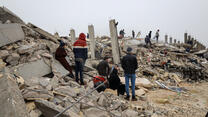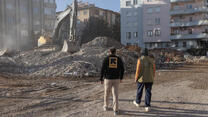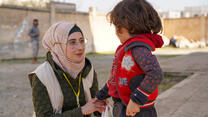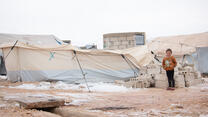
Thousands of people have been killed and tens of thousands more injured after a 7.8 magnitude earthquake struck southern Türkiye on Monday, just 80 km from the Syrian border. Since the earthquake there have been 317 aftershocks, the strongest was 7.5 magnitude - further adding to the devastation.
Many of the hardest-hit communities are in northwestern Syria, where people who have already been displaced several times by the ongoing conflict are among those whose homes were destroyed in the quakes. They are without adequate shelter, food and basic necessities as temperatures plunge well below freezing.
Even before this crisis, more than 15 million people in Syria were in need of humanitarian assistance - with aid efforts receiving less than half of the necessary funding.
How can I help earthquake victims in Türkiye and Syria?
Funding is urgently needed to help people affected by the earthquakes survive this crisis and begin their recovery. The IRC has more than 1,000 staff inside Syria who are working tirelessly to provide life-saving support. We will be scaling up our response to support affected communities in Türkiye as well.
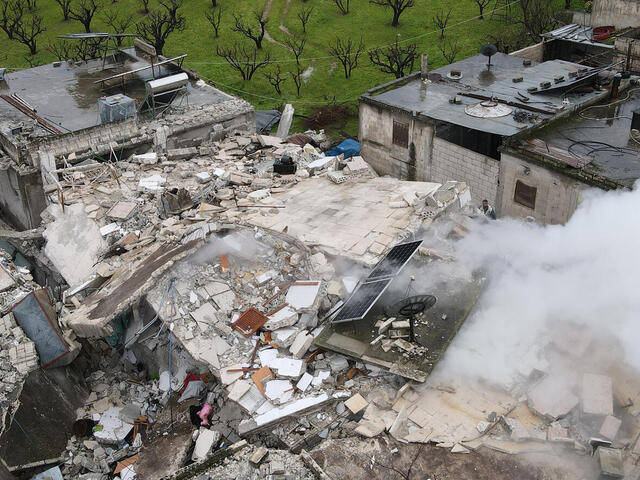
Donate today to help us provide emergency services to families in Türkiye and Syria, and to refugee families in countries around the world.
The IRC is consistently awarded high marks by charity watchdog groups for our efficient use of financial support and the effectiveness of our work.
What is the IRC doing to support victims?
The IRC immediately responded to the crisis by providing critical financial support to 10 of our partner organisations working in northwest Syria and Türkiye. Additionally, the IRC is launching an integrated response to support affected communities in northwestern Syria and Türkiye as humanitarian needs soar in both countries
This will include providing thousands of households with cash and essential items such as household kits, dignity kits for women and girls and hygiene supplies, including towels and blankets.
As part of our work to support essential health services in affected areas, the IRC is launching two mobile health teams which will provide treatment and care to survivors. We will also set up safe spaces for women and children affected by the crisis.
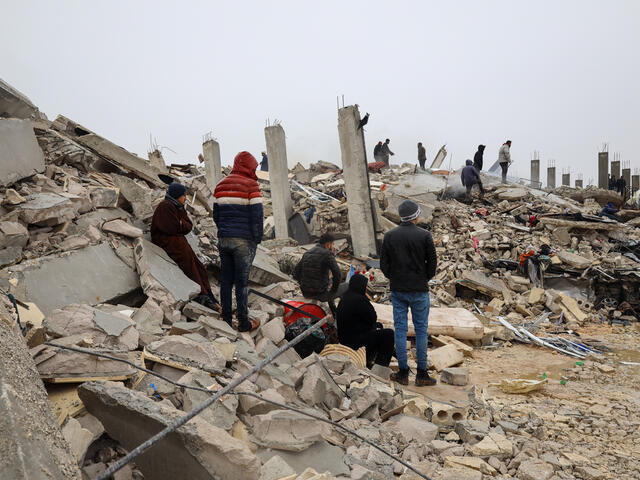
Get informed: How has the earthquake affected Syria?
The earthquake has compounded an already dangerous humanitarian crisis in Syria, which landed the country on the IRC’s 2023 Emergency Watchlist. Prolonged conflict in the country has weakened Syria’s health system, which has also been strained by a cholera outbreak, and made it difficult for aid to enter the country.
“Many in northwest Syria have been displaced up to 20 times,” says Tanya Evans, the IRC’s Syria country director, “and with health facilities strained beyond capacity, even before this tragedy many did not have access to the healthcare they critically need.”
The recent earthquake and following aftershocks destroyed thousands of homes in a region where 2 million people were already lacking adequate shelter. The damage also caused electricity, internet and cellular outages and disrupted gas supplies people rely on for heat.
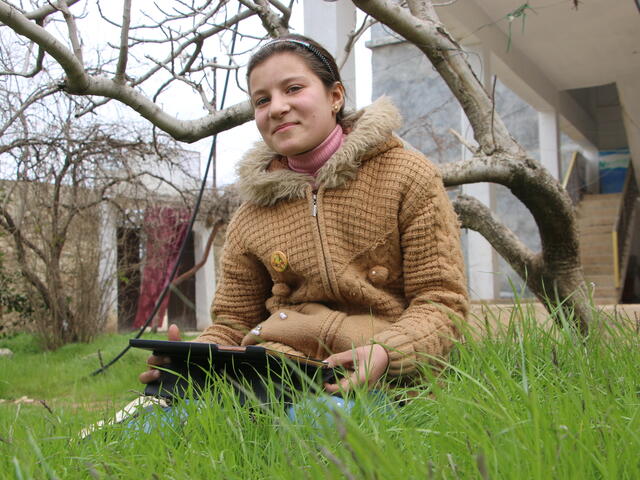
“The scale of the destruction is catastrophic,” explains Evans. “With the response in its infancy the need for humanitarian aid is stark.”
Spread the word
Continued support is needed as first responders and organisations like the IRC work to respond to the emergency. Share this Twitter post to help raise awareness of this crisis within a crisis in Syria:
The earthquakes in #Turkey and Syria have created a crisis within multiple crises.
— International Rescue Committee - EU (@RESCUE_EU) February 7, 2023
Here’s what that means and how you can help ⬇️ [Thread] pic.twitter.com/1ZAD4YHfSf
Learn more about the impact of the Syria-Türkiye earthquakes.
*Pseudonym used for privacy.
